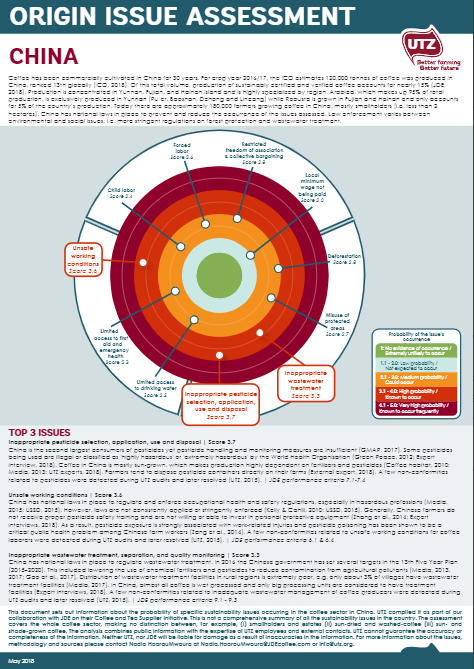Origin Issue Assessment: China Coffee
The 2017 China Origin Issue Assessment (OIA) is one of the first to be developed as part of the JDE Common Grounds program. Research conducted by the Rainforest Alliance for the 2017 China OIA finds that the following are key risks in the country’s coffee sector: inappropriate pesticide selection, application, use, and disposal; unsafe working conditions; and inappropriate wastewater treatment, separation, and quality monitoring.
Evidence shows that pesticide handling, monitoring, and disposal amongst Chinese coffee farmers are insufficient. This is especially concerning as evidence shows that some of the pesticides in use are illegal or classified as 'highly hazardous' or 'extremely hazardous' by the WHO. Linked to this risk is the fact that Chinese farmers often lack both the proper training and personal protective equipment needed to safely handle pesticides, resulting in pesticide exposure as well as pesticide poisoning and related injuries. The capacity and availability of wastewater treatment facilities in rural China is limited, making it difficult for coffee farmers to process their coffee in a way that conforms to wastewater management standards.
